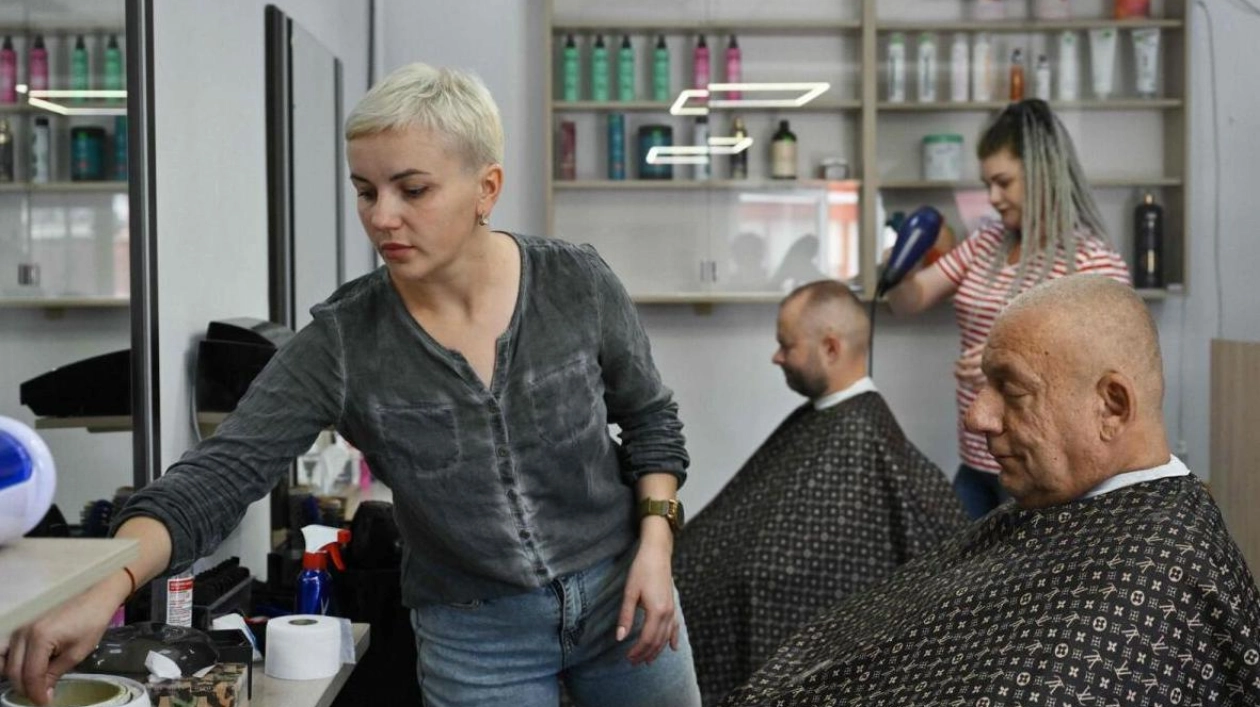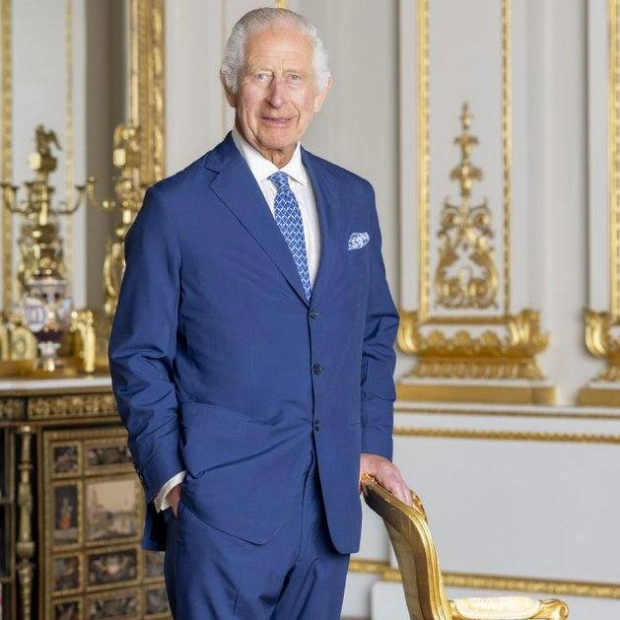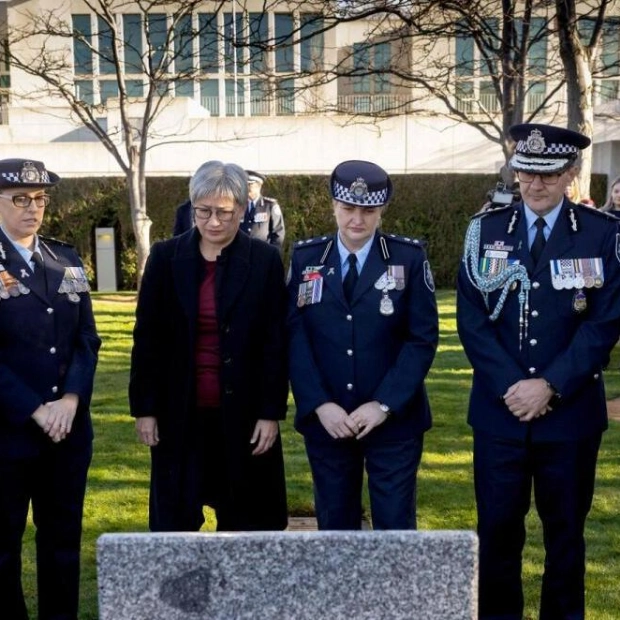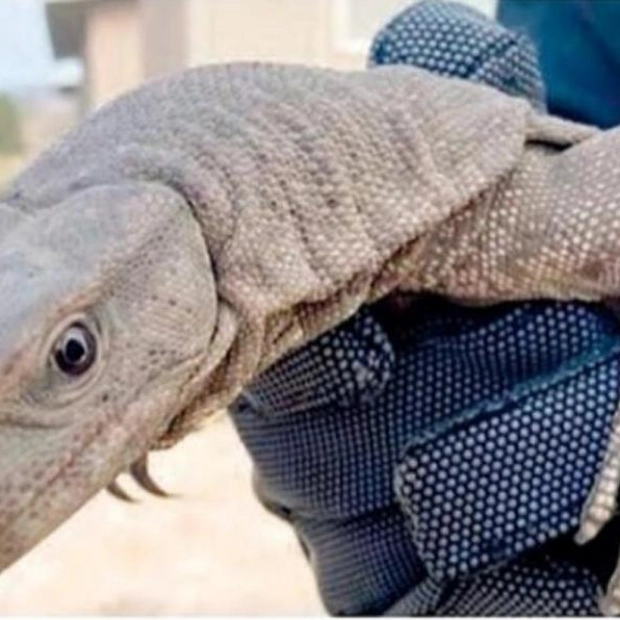Maryna Skromnaya was determined to face the constant shelling and explosions in Pokrovsk, an eastern Ukrainian city under heavy Russian assault, just to get her hair done at a local salon. "I need to stay beautiful rather than run around looking like Baba Yaga!" she exclaimed, referring to the mythical forest witch known for feasting on children. With her blue eyes now framed by a fresh bob cut, the 57-year-old, who is frail in appearance, stood up from the hairdresser's chair and flashed a peace sign in the brightly lit mirror.
The bustling activity at the salon highlights how thousands of Ukrainians in partially deserted and shelled-out frontline towns are striving to maintain a semblance of normalcy. The salon, with its pristine white walls, stands as a rare oasis of daily life in Pokrovsk, even as Moscow's forces close in just 10km away. The mining city, which was home to 60,000 people before the Russian invasion, has seen its population plummet from around 48,000 to 16,000 over the last month, according to local authorities who are urging residents to evacuate. Skromnaya was preparing to heed this advice but wanted to savor a few final moments at home, which included a haircut at her favorite salon, even if it meant a 40-minute walk to get there.
"Public transport? You may as well lie down on the floor waiting for it. It's gone," Skromnaya said. "You can always start walking, turn your music on, go feel beautiful." However, venturing outside in Pokrovsk these days is fraught with danger. "There were bangs here, bangs there, there's always something exploding," Skromnaya said, gesturing left and right. Inside the salon, the hum of hair clippers and blow dryers barely masked the distant thuds from the front line, some seven kilometers away. Facing intensified Russian bombardments, authorities have ordered residents to stay indoors for 20 hours a day. Consequently, potential customers were constantly rushing in, desperate for a slot during the narrow window between 11am and 3pm—outside the strict curfew.
"Look at me, I look like a bum!" one man joked, lifting his cap to reveal a slightly uneven cut. Salon worker Natalya Gaydash shook her head apologetically; he didn't have an appointment. The team was doing its best to accommodate as many clients as possible. "The war is not a reason to just lay down and die with your hair undone, your nails unclipped and dirty," said 32-year-old Gaydash. The salon will remain open as long as the Russians are far enough away, said owner Ludmila Kovaleva, who opened the place five years ago. "How can you stop going to work if people are waiting for you?"
"People come for a slice of positivity," Gaydash said. "Some come to share their problems... others share a bit of joy with us." Feeling fresh and handsome after his trim, 54-year-old Yury Chaplygin beamed, revealing a few golden teeth. "There's a good atmosphere, you can drink coffee as you wait for your turn," the locomotive driver said in a deep voice. The few remaining workers from a nearby market, now mostly closed, gathered around the salon's coffee machine, sharing gossip for a few minutes. Another beauty salon just around the corner, owned by Kovaleva's sister Iryna Martynova, recently shut its doors.
"Clients used to get served by my sister, then go see me, then go back to my sister just like on a merry-go-round," Martynova said wistfully. But people stopped trickling in after the evacuations intensified in August. Martynova's salon is now empty, save for a few shelves covered in blue plastic wrap. She pointed to where the tattoo removal, permanent makeup, and depilation machines used to stand. The door was cracked in a recent shelling attack. "This is not normal, and with every day that passes it's getting even more abnormal. I've already made up my mind, I'm leaving," Martynova said, tearing up at the thought of having to start all over again. She found some comfort in the fact that her former clients, now scattered across Ukraine, have already started calling her to see where she'll go and if they can make a booking. "This is my life's work, my favorite job. I'm left without it. My favorite clients, I've known them all for years. Now my soul is empty."






